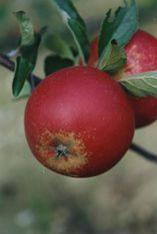
The introduction of apple import licences across the EU and reduced volumes arriving on the spot-market from the southern hemisphere have righted the badly listed ship of 2005.
The European Commission introduced licences in February to compensate for a shortfall in the provision of data from EU Customs authorities. Their introduction was widely criticised, but the Commission insisted this week that it never intented to use the mechanism to impose additional restrictions beyond the special safeguard clause and its trigger levels, as stipulated by the WTO.
“Licences are preventing exporters from sending fruit they do not have buyers for,” said one industry observer. “It means they can’t just ship and hope that there is a buyer or a market for their fruit. They have to have someone to present an import licence for that consignment.”
As at August 4, importers had applied for licences to import 718,196 tonnes while SHAFFE - the association that represents southern-hemisphere senders - reported that 665,799t had been exported. “Licences are valid for three months,” explained Ellen Pay of European fresh produce association Freshfel. “So it is normal that we would see a difference in these two figures.”
The fact that southern hemisphere production is down on last season is also a significant factor. But one major player in New Zealand warns against complacency. “I am struck by how similar the UK retail scene is this year to 2005,” said John McCliskie of Heartland NZ which markets the Love’Ya brand. “The scary thing is that had the southern hemisphere supplied a similar volume to 2005, then we would have all had the same outcome. The only difference to last year is that supply and demand is in balance and coupled with a lower dollar in New Zealand, growers will make some money this year.”
Industry body Pipfruit NZ estimates that growers are averaging NZ$20 (£6.76) a carton for their fruit across all varieties compared to an average NZ$8-10 last season.
“Some think the good times are here again,” said McCliskie. “They are not...New Zealand needs to move to a residue-free status as a brand for NZ apples as soon as possible. This would differentiate us overnight and would gain us competitive advantage over other countries.”
“I cannot stress enough that we have little time left to raise our game as others have caught us up and can match us as to our offer, quality, service and supply,” McCliskie said.
Apple production in the EU is forecast to be down by seven per cent, adding to marketing optimism.
Braeburn is predicted to be down across EU15 countries to the tune of 12 per cent on last year, Golden Delicious by 11 per cent, Granny Smith by six per cent and Gala by five per cent. Cox production in the UK and the Netherlands is forecast to fall by 26 per cent on last season’s high volume year, but the UK crop is likely to be some four per cent up on the three-year average.
Polish production is forecast to fall by four per cent on last year.



